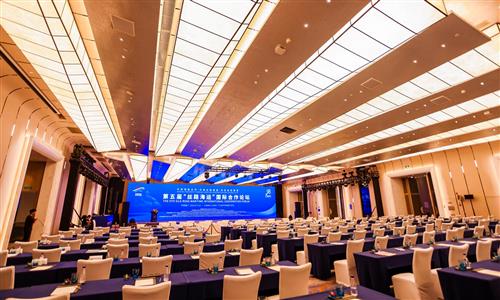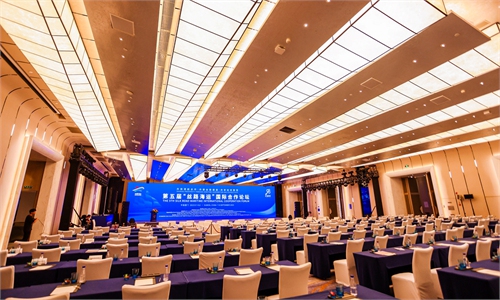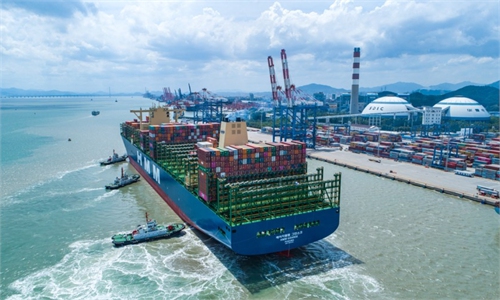China’s Silk Road Maritime International Association announces integrated development strategy, promoting global sea transport under BRI
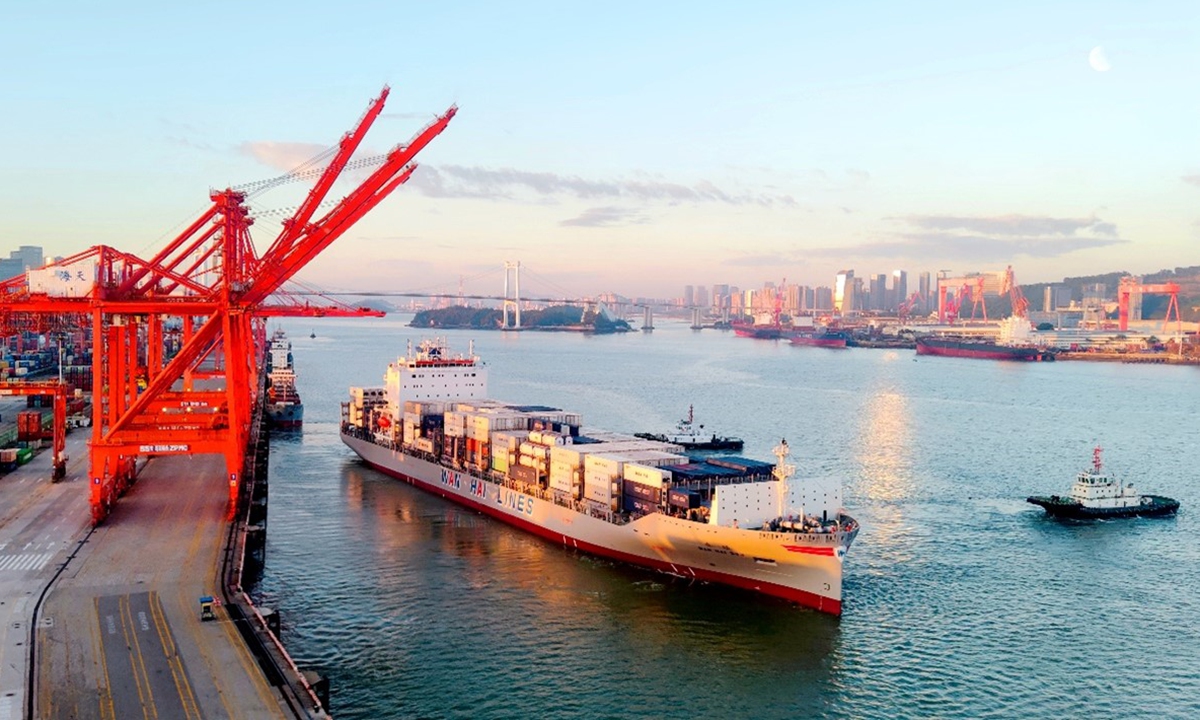
Photo: Courtesy of the Silk Road Maritime International Association
The Silk Road Maritime International Association, based in East China's Fujian Province, is implementing a comprehensive development strategy to promote a global sea transportation network under the Belt and Road Initiative (BRI), offering stable and secure logistics solutions amid complex international environment.Li Nan, Secretary-General of the Silk Road Maritime International Association and the General Manager of Fujian Silk Road Maritime Management Co, told the Global Times that the association has put forward a six-point guideline, including establishing an association, a series of sea routes, a standard system, an information platform, a set of policy and a cooperation forum, to better provide high quality services to domestic and overseas clients.
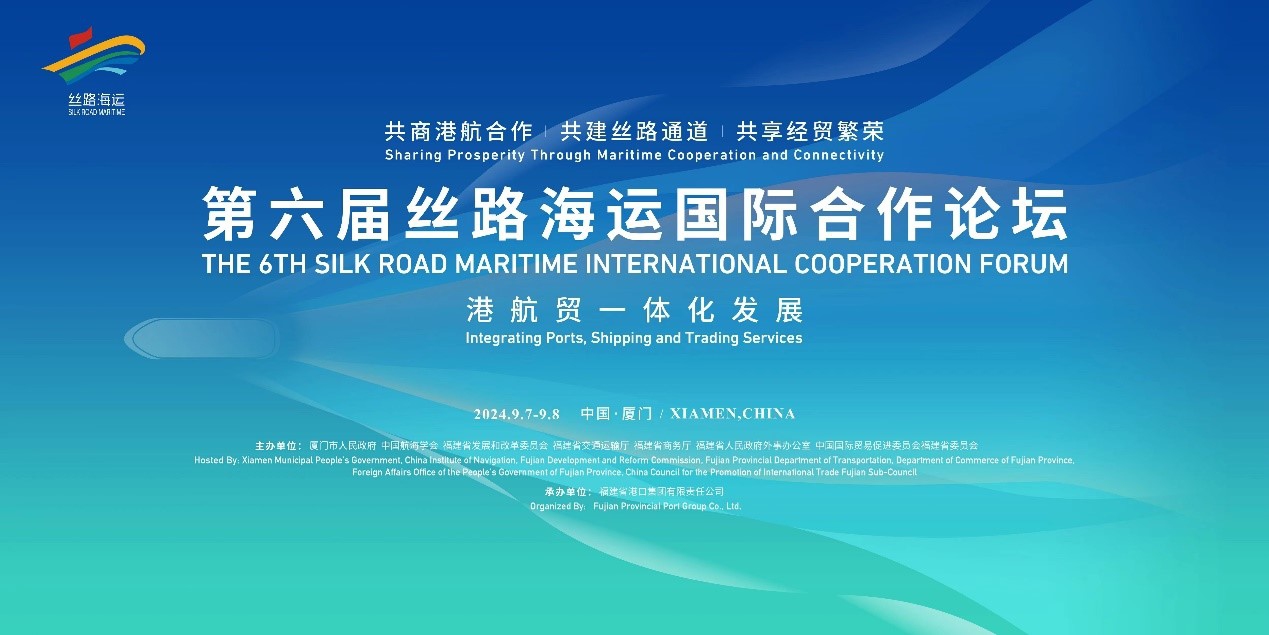
Photo: Courtesy of the Silk Road Maritime International Association
Since the Silk Road Maritime International Association was established in 2018, the association has conducted close exchanges with leading ports, sea transport companies, logistics companies, trading and manufacturing companies and other partners.
To further enhance port and shipping service quality, Silk Road Maritime has named a series of routes that originate from Chinese ports, sail along countries and regions under the 21st-Century Maritime Silk Road, and meet the association's standards.
The routes now cover major coastal ports such as Shanghai, Tianjin, Guangzhou, and Xiamen in East China's Fujian Province, among others.
By the end of August this year, the association has grown to include over 330 members, with 122 named routes covering 10 Chinese ports and reaching 135 ports in 46 countries and regions worldwide, said Li.
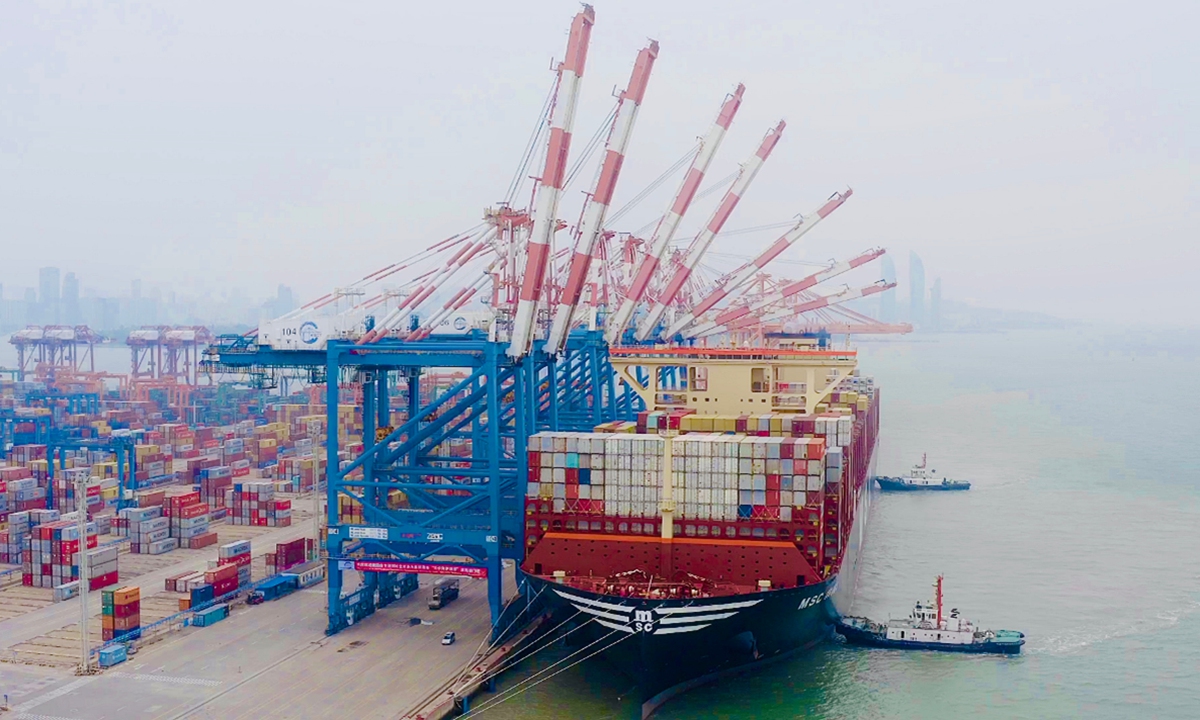
Photo: Courtesy of the Silk Road Maritime International Association
In terms of forming standards, the Silk Road Maritime International Association collaborated with universities and research institutes, and issued service quality requirements across various links of the logistics chain, including ports, shipping, customs clearance, transshipment, and multimodal transport terminals. These efforts aim to build and improve the Silk Road Maritime service standard system, enhancing logistics efficiency and better supporting the development of trade.
Basing on the standard system, the association established a comprehensive online service platform which has realized functions such as public booking, full logistics visibility and tracking, and monitoring of routes named by the association. It has also installed modules for oceanic weather navigation and intelligent maritime services.
The Silk Road Maritime International Association received supports from local governments. Local governments in Fujian Province, issued a series of policies including financial supports for encouraging port operators, shipping companies and logistics companies to actively expand sea-land cargo sources and innovate logistics channels. The association has also launched a series of measures, such as quantitative assessment rewards, to encourage the industry to improve service standards, Li noted.
A key highlight of the guidelines is the 6th Silk Road Maritime International Cooperation Forum, to be held in Xiamen, Fujian, from September 7 to 8. The event's annual theme is "Promoting the Integrated Development of Ports, Shipping, and Trade under the Silk Road Maritime," signaling that integration in ports, shipping, and trade will be the keyword for the next phase of the association's development.
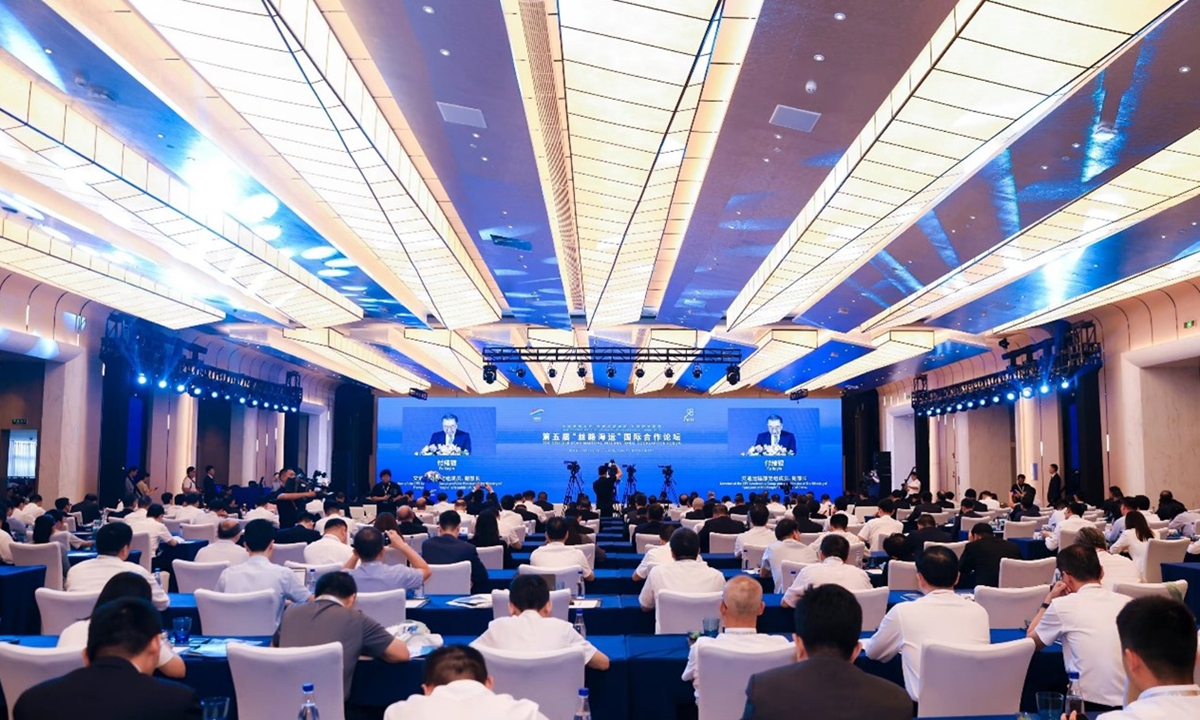
Photo: Courtesy of the Silk Road Maritime International Association
Since its inception in 2019, the Silk Road Maritime International Cooperation Forum has been held five times, attracting more than 5,000 participants and developing the forum into a hub for government-business communication and a high-quality international port and shipping dialogue and cooperation platform under the BRI.
Currently, in advancing the integrated development of ports, shipping, and trade, Silk Road Maritime is focused on creating an integrated ecological layout of "points, lines, and surfaces" which refers to an overall construction of ports, sea routes and transport network.
In ports construction, almost all large coastal port groups in China have joined the Silk Road Maritime International Association, along with top global shipping companies such as COSCO Shipping, Maersk, and the MSC.
Over the past two years, the Silk Road Maritime e-commerce express line has handled over 50,000 standard containers, with cross-border e-commerce export goods exceeding 1.45 million pieces and a total value of 11.3 billion yuan ($1.59 billion) basing on the construction of ports and sea routes.
Li revealed that the upcoming forum will release multiple development progress of the sector, sign a series of cooperation agreements, including the release of the 14th batch of Silk Road Maritime routes and the Silk Road Maritime integrated development initiative.
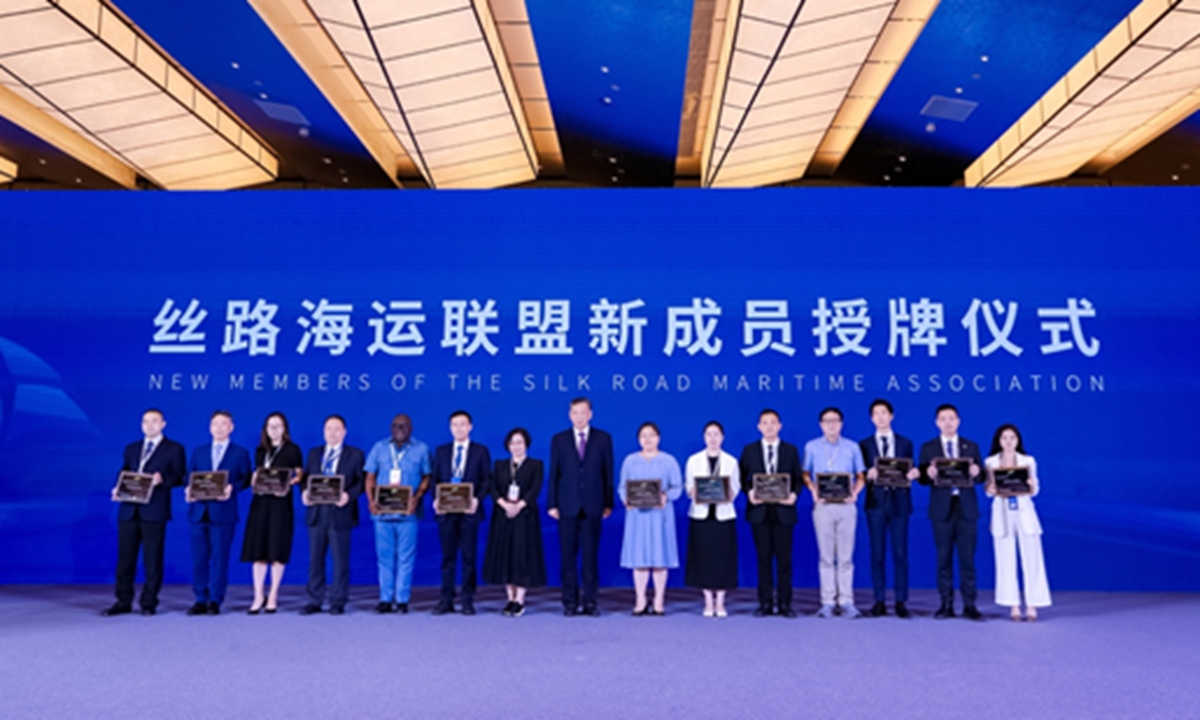
Photo: Courtesy of the Silk Road Maritime International Association
Additionally, for the first time, the forum will feature a ports, shipping, and trade matchmaking meeting to strengthen the connection and collaboration between upstream and downstream of the industrial and value chains. Li emphasized that the Silk Road Maritime can play a crucial role in ensuring the security and stability of China's supply chain amidst the complex international environment.
During the 3rd Belt and Road Forum for International Cooperation held in October 2023, China announced eight actions in pursuing high-quality Belt and Road cooperation, emphasizing that China will work to integrate ports, shipping and trading services under the Silk Road Maritime, and accelerate the building of the New International Land-Sea Trade Corridor and the Air Silk Road.
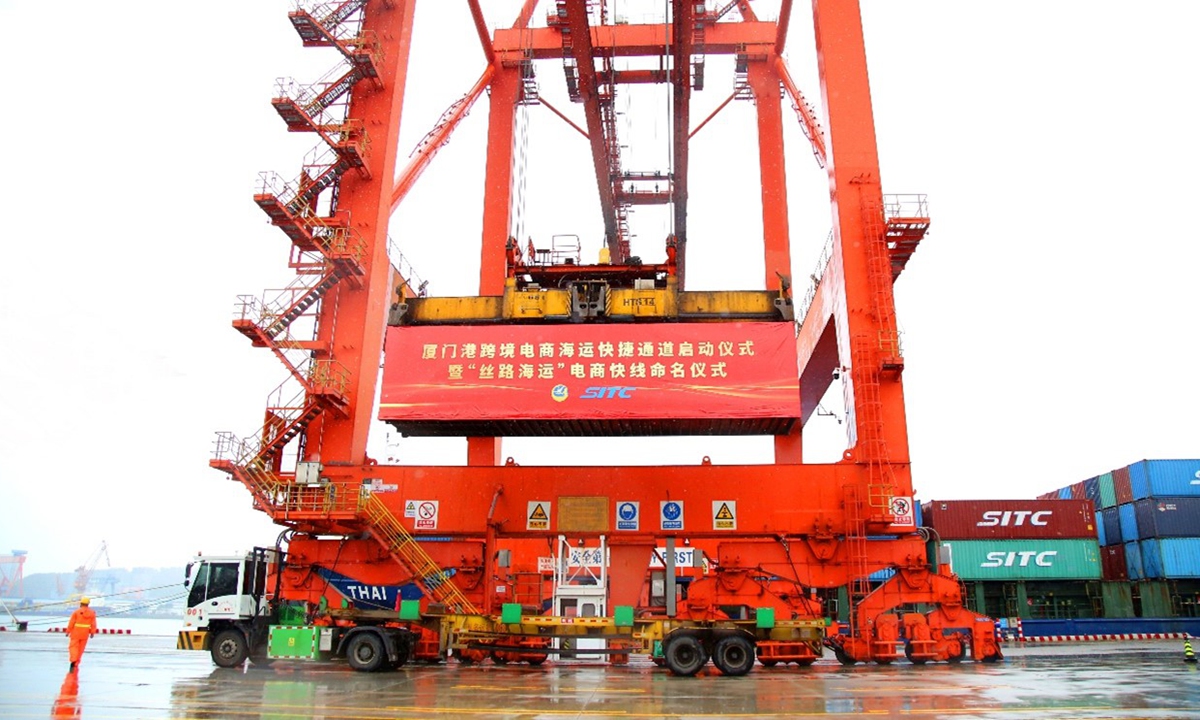
Photo: Courtesy of the Silk Road Maritime International Association
"After six years of exploration, Silk Road Maritime has fully realized that the ultimate goal of port and shipping development is to better facilitate trade, using trade as a link to expand all-round exchanges between China and countries involved in the BRI, and to jointly build a community with a shared future for mankind," Li added.
Moving forward, Silk Road Maritime is considering the establishment of relevant financing firms targeting freight index futures trading, ship leasing, ship transactions, personnel training, and other finance services, further expand channels for enterprises' global business, creating a golden logistics channel serving the BRI partnership countries, Li noted.
